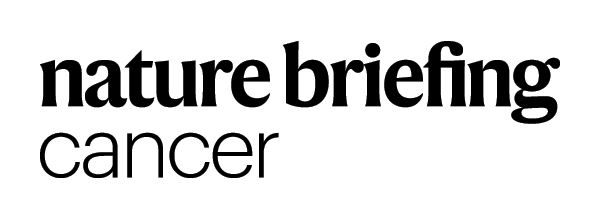| |||||
| |||||
| Hello Nature readers, | |||||
 | |||||
| Chimeric antigen receptor (CAR) T cell therapy involves extracting a person's immune cells and genetically engineering them to express a protein that recognises cancer cells. (Thom Leach/Science Photo Library) | |||||
When CAR T cells get killed by other T cellsA promising treatment for T-cell cancers that uses anti-TRBC1 CAR T cells (which target a region of cancer cells called T cell receptor β-chain constant region 1) fell flat in the first-in-human clinical trial. Only 20% of participants remained in remission after one year and CAR T cells seemed to mysteriously disappear from the blood. Now researchers have found the reason why: the body's normal T cells kill off the CAR T cells. To overcome this, researchers designed an antibody–drug conjugate that uses the same molecular target as anti-TRBC1 CAR T cells. In mice, the antibody–drug conjugate wasn't eliminated by the immune system and it cured T-cell cancers. Reference: Nature paper (27 March) | |||||
Threonine restriction disrupts cancerLimiting the amount of an amino acid called threonine in the diets of mice — or depleting levels of the YRDC protein through gene knockdown — disrupts the growth of glioblastomas. Both interventions reduced the formation of t6A, a transfer-RNA modification that promotes cell replication and tumour growth. "Our studies identified a metabolic role of threonine in t6A biosynthesis and translational reprogramming, which translates into a well-tolerated dietary therapy," report the researchers. Reference: Nature Cancer paper (22 March) | |||||
| |||||
TB infection linked to cancer riskPeople treated for tuberculosis (TB) are 80% more likely to get cancer than a control group. A retrospective study of more than 145,000 Koreans found that rates of lung, blood, gynaecological and gastrointestinal cancers were higher among those who had been infected with TB. "Screening and management for cancer should be warranted in patients with TB even after successful cure of TB," report the researchers. This abstract was presented at the 2024 European Congress of Clinical Microbiology & Infectious Diseases. | |||||
 | |||||
ACCESS NATURE AND 54 OTHER NATURE JOURNALS Nature+ is our most affordable 30-day subscription, giving you online access to a wide range of specialist Nature Portfolio journals, including Nature. Nature+ is for personal use and is suitable for students. | |||||
| |||||
The ethics of chemo at the end of lifeOncologists often prescribe chemotherapy in the weeks leading up to a person's death, even when there is a low chance of success. In an analysis of 280 US cancer clinics, 39% of patients received cancer therapy within a month — and 17% within a fortnight — of death. "One grim joke even poses the question, 'Why are coffins nailed shut?' The answer: 'To keep oncologists from giving another round of chemotherapy," writes haematologist Mikkael Sekeres. The Centers for Medicare & Medicaid Services recognises chemotherapy within two weeks of a patient's death as an indicator of poor-quality care. But patients should be allowed to make the decision for themselves, argues Sekeres. The Washington Post | 5 min readReference: JAMA Oncology paper (from 2022) | |||||
'Woah, this is affecting me'One-quarter of Black men are diagnosed with prostate cancer in the United Kingdom, compared with one-eighth of white men. Black men are twice as likely to die from the disease as white men. Those statistics caught the attention of Olugbenga Samuel Oyeniyi, and contributed to his decision to transition from a career in clinical science to a public-health role as research coordinator for the Early Diagnosis of Prostate Cancer for Black Men project. "I thought, 'Woah, this is affecting me' — I'm the eldest of four brothers. And not just me, but my community," he says. Nature | 6 min read | |||||
| |||||
Video: Off-the-shelf cancer vaccinesMaking vaccines that target an individual's cancer mutations is expensive, but the cost drops when the vaccine is made inside the body. To do this, cancer cells are killed using radiotherapy, which causes them to release their unique proteins. At the same time, drugs that activate dendritic cells are administered. These immune cells soak up the mutated cancer proteins, called neoantigens, and stimulate T cells to attack the cancer. Nature Outline | 4 min videoThis editorially independent video is part of Nature Outline: Cancer vaccines, a supplement produced with financial support from Moderna. | |||||
 | |||||
In the news
| |||||
Quote of the week"It is time to follow the science and let our patients eat."Research suggests that clear liquid diets are not necessary for successful colonoscopies, says gastroenterologist Benjamin Lebwohl. (STAT | 5 min read) | |||||
| | |||||
| |||||
| | |||||
| Want more? Update your preferences to sign up to our other free Nature Briefing newsletters:
| |||||
| |||||
| You received this newsletter because you subscribed with the email address: gustavo.braslavsky@gmail.com Please add cancerbriefing@nature.com to your address book. Enjoying this newsletter? You can use this form to recommend it to a friend or colleague — thank you! Had enough? To unsubscribe from this Briefing, but keep receiving your other Nature Briefing newsletters, please update your subscription preferences. To stop all Nature Briefing emails forever, click here to remove your personal data from our system. Fancy a bit of a read? View our privacy policy. Forwarded by a friend? Get the Briefing straight to your inbox: subscribe for free. Get more from Nature: Register for free on nature.com to sign up for other newsletters specific to your field and email alerts from Nature Research journals. Nature | The Springer Nature Campus, 4 Crinan Street, London, N1 9XW, United Kingdom Nature Research, part of Springer Nature. |
Tuberculosis linked to cancer risk
Subscribe to:
Post Comments (Atom)

No comments:
Post a Comment